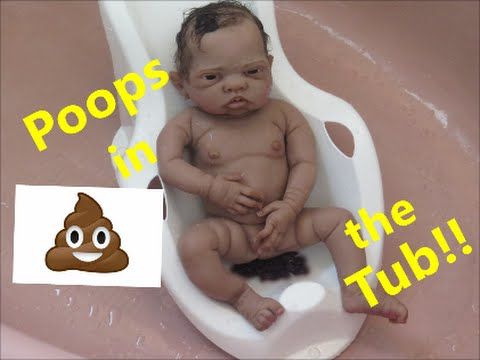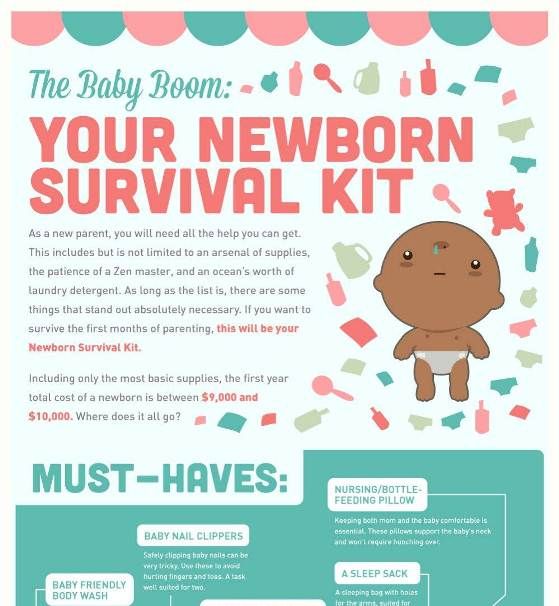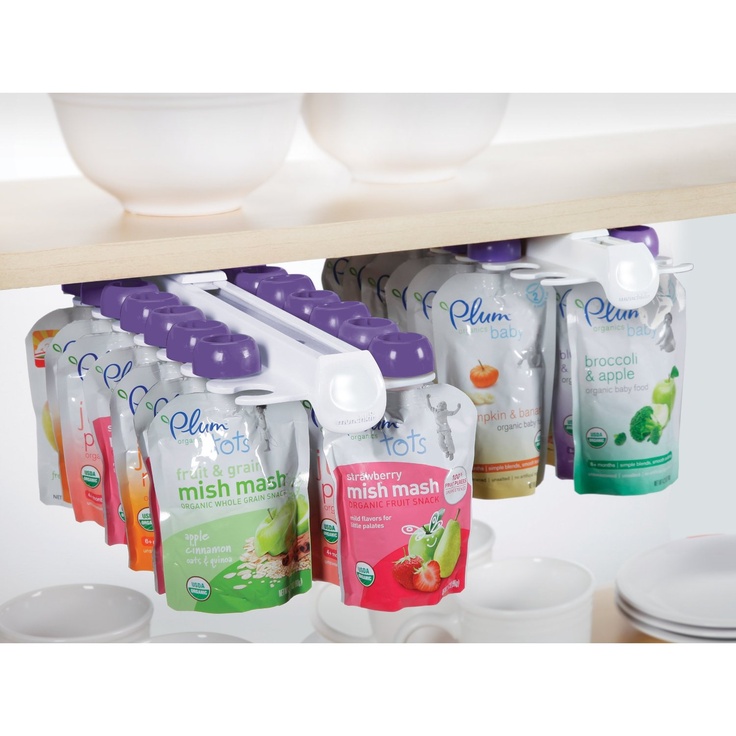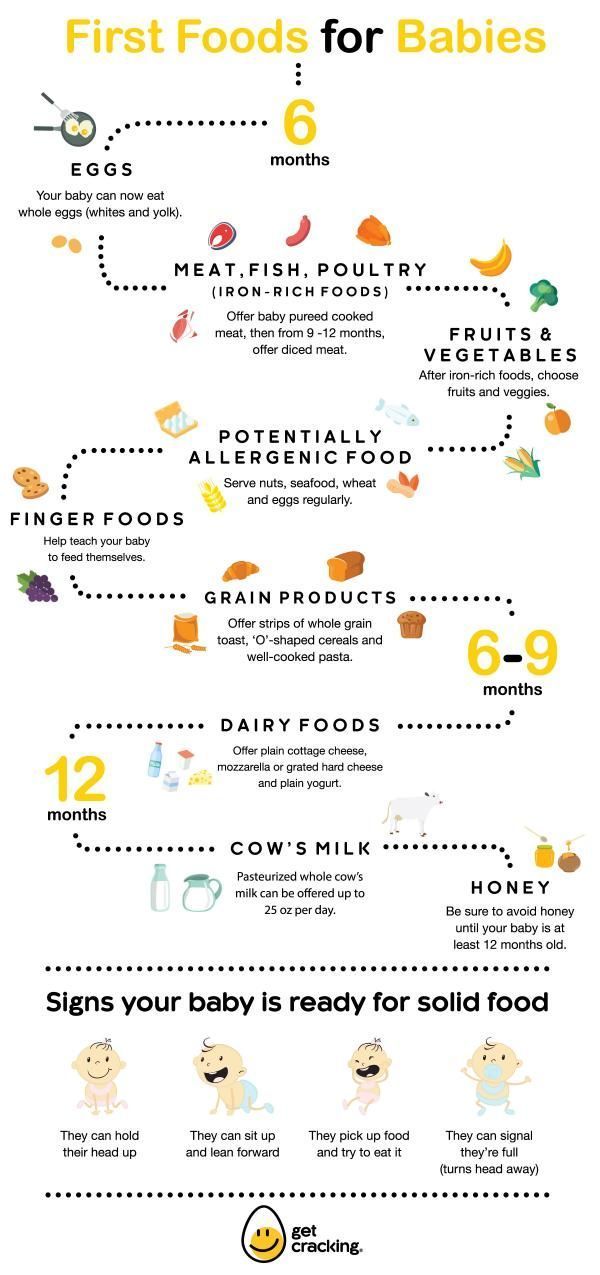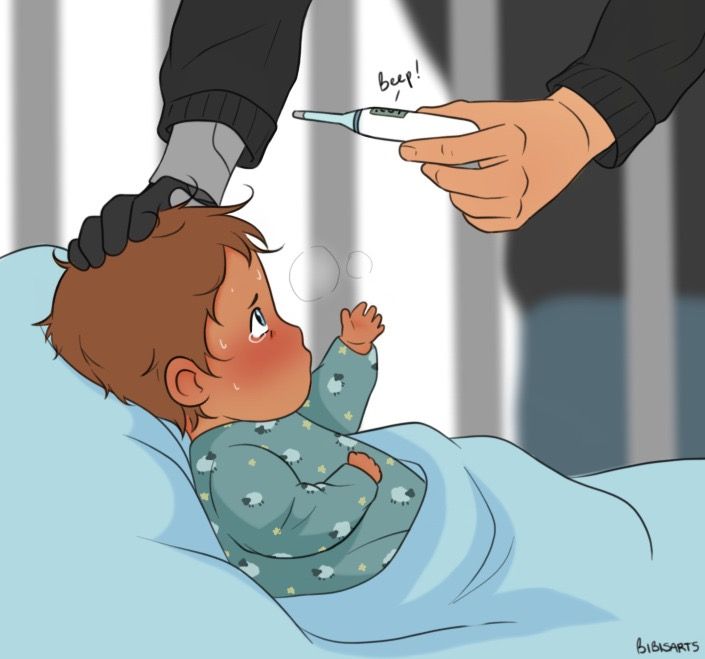Baby poops after feeding
How often should a newborn poop?
Yes, it's normal if your baby is pooping after every single feeding. You’ll quickly discover that when it comes to newborns, poop frequency comes in a wide range of normal.
Some babies are just more productive poopers than others. It’s perfectly okay to end every feeding with a diaper change, or to not see a single bowel movement for a few days. Your baby pooping a lot probably isn’t an issue, unless you’re changing three or more extra-watery diapers a day. In that case, it could be diarrhea, which is something to let your baby's doctor know about.
How often should a newborn poop?
It varies. Poop habits differ a lot from baby to baby. The average frequency is one or more bowel movements daily. But some newborns produce five or more dirty diapers a day in their first 2 weeks of life, while others go for days without pooping.
It’s not unusual for newborns to poop a lot, since they spend most of their waking hours eating. In general, breastfed babies poop more than formula-fed ones. In fact, your baby may poop while nursing and again once they’re done – which is why you may want to wait a few minutes after you're finished breastfeeding before swooping in with a clean diaper.
Because breastfed poops contain more liquid, they’ll look more watery than the stools of formula-fed babies. (See real photos of the different kinds of baby poop here.)
When a breastfed newborn poops after every feeding during the first few weeks, take it as a good sign – it means they’re getting plenty of milk. Even though formula-fed babies may have less frequent bowel movements than breastfed babies, it's normal for them to poop after every feeding as well.
The frequency of your baby's bowel movements may start to slow down by the time they're around 6 weeks old, but some babies continue their pattern of pooping after every feeding for much longer. (It’s not uncommon for some 1-year-olds to poop five times a day.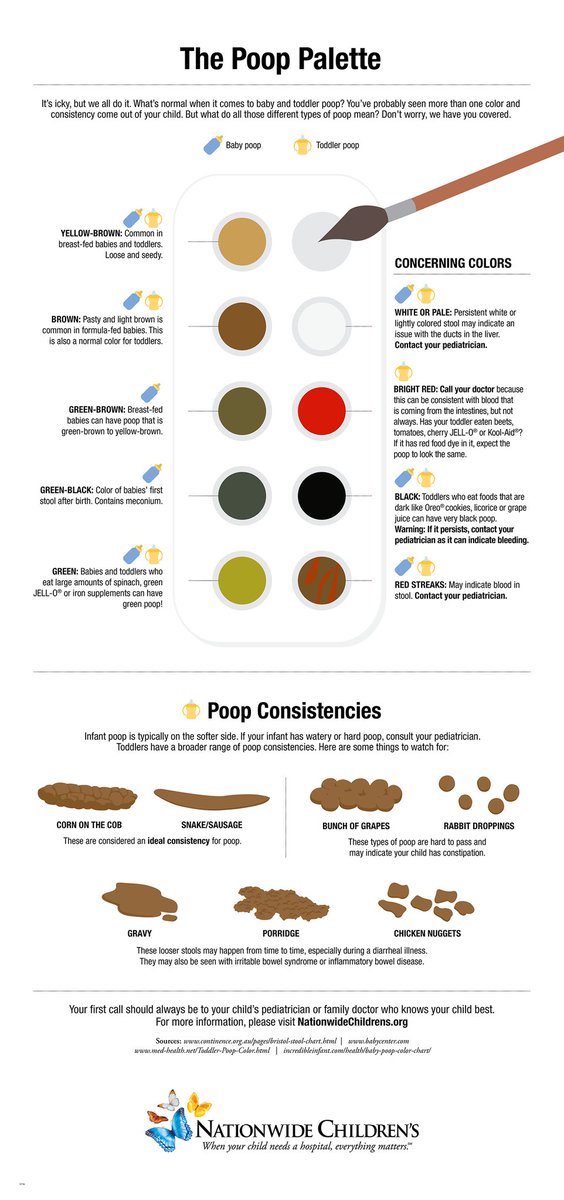 )
)
How long can a baby go without pooping?
If your baby hasn’t had a bowel movement in a few days, there’s no need to immediately fear the big “C” (aka, constipation). Babies can go days, or even a week, without producing a dirty diaper. A breastfed baby can go even longer – as long as two weeks without pooping if they haven’t started on solid foods yet.
If the bowel movements your baby does make are soft, constipation probably isn’t an issue. Exclusively breastfed babies rarely get constipated because breastmilk is an economical food. Your baby gets just what they need, with little waste leftover to poop out.
True constipation in babies typically happens from a change in diet, a lack of fluids, or an illness. The telltale sign is hard, dry stools. If your baby is constipated, they may get extra fussy and look like they’re straining uncomfortably when they try to go.
Should I ever be worried about my baby pooping a lot?
Generally, if your baby's bowel movements are fairly consistent and they’re acting like their usual self, frequent poops aren't a cause for concern.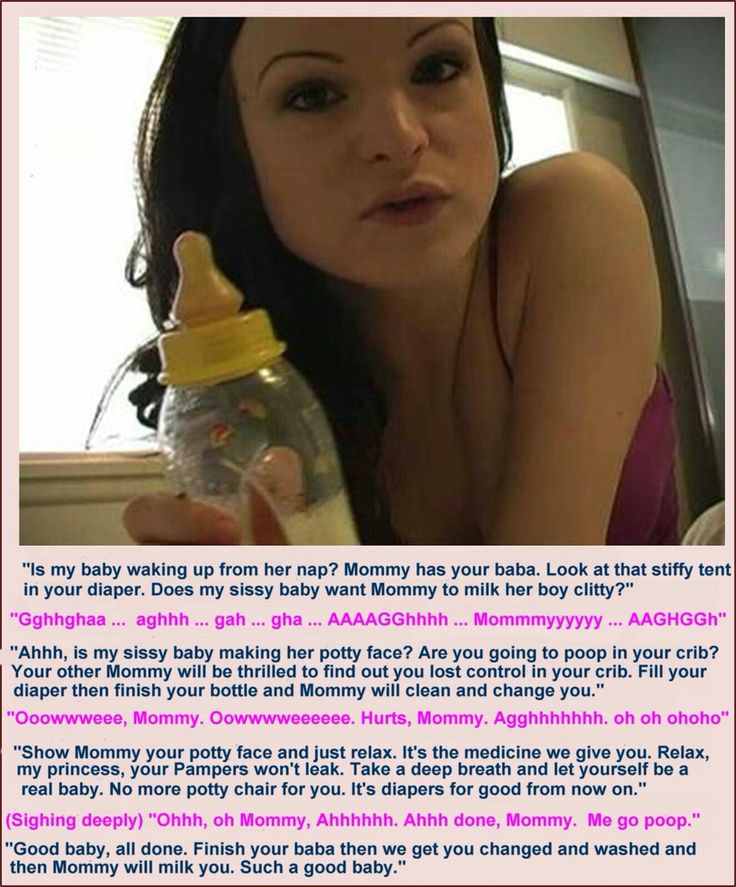 However, if there's a sudden change in your baby's pooping pattern and their stool becomes watery, check with their doctor. Very watery bowel movements could be a sign of an infection.
However, if there's a sudden change in your baby's pooping pattern and their stool becomes watery, check with their doctor. Very watery bowel movements could be a sign of an infection.
Call the doctor if your baby has any of these other poop-related symptoms:
- Pulling their legs up to their stomach (a sign that their tummy hurts)
- Straining to have a bowel movement
- Poop that looks like small, hard pebbles or is extra watery
- Irritability
- A swollen belly
- Blood in their poop
If my baby is pooping a lot, are they more prone to diaper rash?
Babies who have frequent bowel movements can be more susceptible to diaper rash. Constant contact with stool can irritate the sensitive skin on their bottom.
The best way to prevent diaper rash is to keep your baby’s bottom clean and dry. To start, change their diapers more often. Wash their skin clean with warm water during each change.
You may want to coat the area with a diaper rash cream or a product containing zinc oxide or petroleum jelly to create a barrier.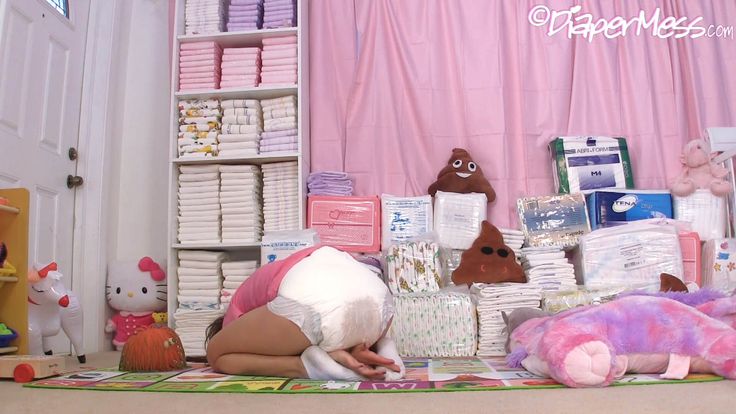 And instead of putting on a new diaper right away, let your baby go diaper-less for a little while each day so their bottom can fully air dry. If these tips don’t relieve the diaper rash, give your baby's doctor a call.
And instead of putting on a new diaper right away, let your baby go diaper-less for a little while each day so their bottom can fully air dry. If these tips don’t relieve the diaper rash, give your baby's doctor a call.
Read more:
A new parent's guide to baby poop
Age-by-age guide to feeding your baby
How much formula newborns and babies need
advertisement | page continues below
Color, Texture, Frequency, Smell, and More
During the first few months of life, breastfed babies typically pass stool several times per day. Their stool will also be a soft-to-runny consistency, and mustard yellow in color.
It’s important to monitor your baby’s diapers during this period, including checking the color, texture, and frequency of their bowel movements. These are good indicators that they’re getting enough breast milk. This is one way you can monitor their health in between visits to the pediatrician.
Read on to learn what to expect from your breastfed baby’s stool, and when to talk to a doctor or lactation consultant.
Over the first few days of life, breastfed babies will pass meconium. This will be tar-like in color and consistency. After around 48 hours, the stool may become looser and lighter in color. Then, within another day or two, the color of breastfed baby stool is usually mustard yellow or yellow-green. It may also be watery or contain mini-white “seeds.” This color is normal.
As your baby grows and starts solid foods, you may notice changes to the color of their stool. It may be more greenish-yellow or tan-brown in color.
Always let your pediatrician know if your baby has stool that is:
- red
- bloody
- black
- pale-grey or white
This may or may not be a sign of illness. Your doctor will be able to evaluate your baby and give you peace of mind.
Expect your breastfed infant’s stool to be soft to runny in texture. It may also be watery, almost like the consistency of diarrhea.
The texture may resemble mustard and contain small, white seed-like particles.
Each bowel movement should be about the size of a United States quarter (2.5 centimeters or larger.)
If your breastfed baby is passing hard, dry, or infrequent stools, they may be constipated. However, constipation is very uncommon, if not rare, in breastfed infants who are well. If your baby is just having infrequent stools, especially after 6-weeks old, it’s likely normal. On the other hand, if your baby has hard, dry stools along with the symptoms listed below, they’re most likely ill, rather than constipated:
- vomiting
- having a dry mouth
- not wanting to breastfeed
- being fussier than usual
Seek immediate medical care for these symptoms.
Your infant’s stool may not have a smell for the first few days. After they pass meconium, many parents claim their breastfed infant’s poop still doesn’t smell very foul.
In fact, it may smell slightly sweet or have a smell resembling popcorn. Other parents have reported their infant’s stool smells like hay or porridge.
Usually, as long as your baby is having frequent bowel movements and their stool is soft, the smell isn’t a concern.
Let your pediatrician know if you notice loose, green stools, or a smell you’re worried about. Your baby may have an allergy or intolerance to something in your diet.
Breastfed babies have frequent bowel movements. Expect at least three bowel movements each day for the first 6 weeks.
Some breastfed babies have 4 to 12 bowel movements per day. Your baby may also pass stool after each feeding.
If your breastfed baby is having less than three bowel movements a day, they might not be getting enough milk. Your pediatrician will be able to check if they’re gaining enough weight. If they’re gaining weight, having fewer bowel movements generally isn’t a problem.
After 6 weeks of age, some breastfed infants will poop less frequently. Some babies have only one bowel movement a day, while others only pass stool every other day or every few days.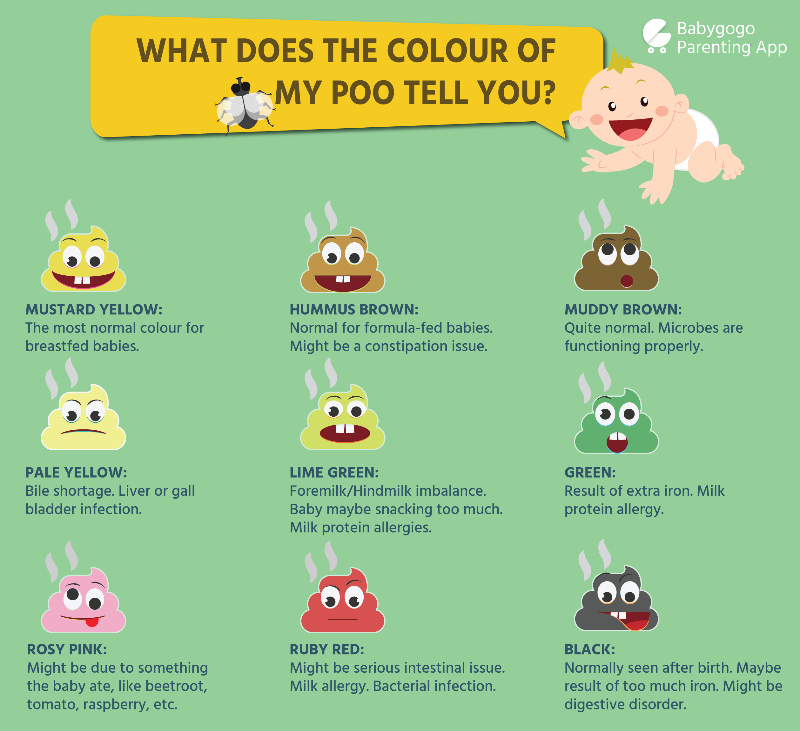 If it’s been several days since their last bowel movement, it will likely be very large.
If it’s been several days since their last bowel movement, it will likely be very large.
If your baby is happy, feeding, and appears to be gaining weight, having less frequent bowel movements after 6 weeks of age isn’t anything to be concerned about, but let your pediatrician know if you’re worried about the frequency of your infant’s stools.
You may notice changes to your infant’s stool anytime there’s a change to their diet, such as when they start eating solid foods. If your baby switches from breast milk to formula or vice versa, you’ll also notice a difference in the color and texture of their stool.
Formula-fed infants typically have a more solid stool and it may be more yellow-green or tan in color.
Some weight loss (5 to 7 percent) is normal in breastfed babies during the first few days of life. Most breastfed babies regain their birth weight after 10 to 14 days.
If your baby is gaining weight steadily after returning to their birth weight, they’re likely getting enough to eat. Steady weight gain means that they’re gaining weight most weeks.
Steady weight gain means that they’re gaining weight most weeks.
Let your pediatrician know if:
- Your baby isn’t gaining weight. Their pediatrician may recommend working with a lactation consultant to confirm your baby is latching properly and getting enough breast milk.
- Your baby isn’t feeding well or passing stool, or they’re passing hard stools. These may be signs of constipation or illness.
- Your baby is passing black, bloody, or green frothy stools. These may be symptoms of an illness.
- Your baby’s poop is unusually watery and more frequent. This may be a sign of diarrhea.
Over the first months of your baby’s life, it’s important to monitor their diapers carefully. Checking their poop’s texture and color is a good way to confirm your baby is healthy and getting enough breast milk.
Usually, a slight change in color or texture isn’t anything to worry about. That’s especially true if your baby has recently switched to solid food, formula, or was sick with a cold.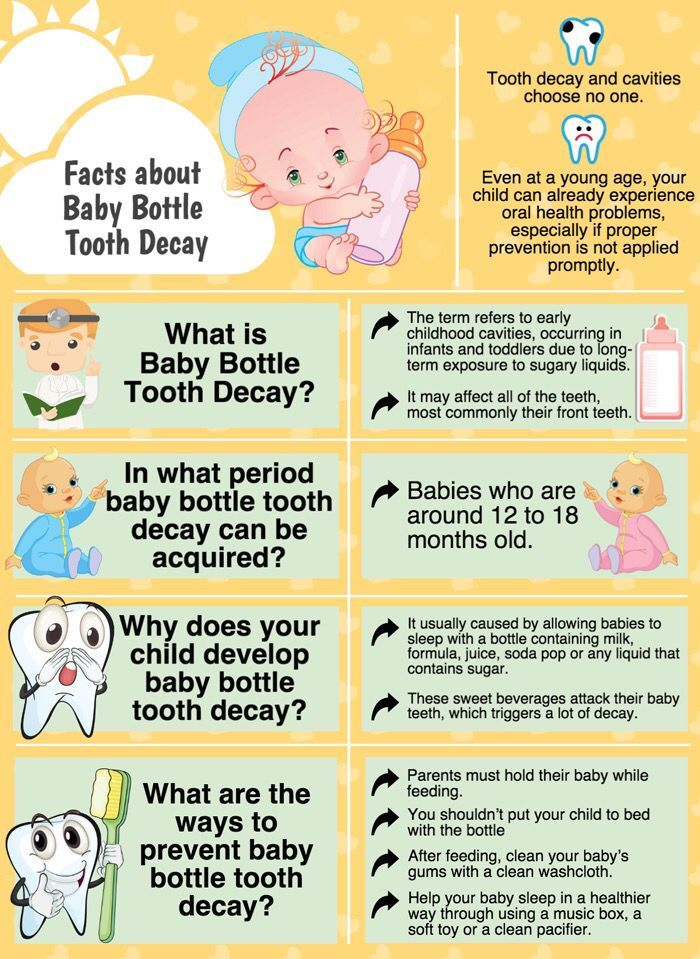
Let your pediatrician know if you notice any blood or black stools in your baby’s diaper, or have other concerns. Your baby’s doctor may also ask about their diapers at your well-baby checkup appointments.
What to do if the child poops after every meal?
A child's stool is one of the most important indicators of the functioning of his digestive system. It perfectly reflects what the baby ate, how much food he ate and how his body reacted to it. That is why young parents need to constantly check the contents of a newborn's diaper or the discharge of an older child.
However, with such control, many mothers ask - why does the child poop after almost every meal, and is this normal? It’s worth starting with the fact that each baby is individual. How many times he defecates can depend on many factors.
There is no strict standard for this indicator. Of course, constipation or diarrhea are manifestations of indigestion, but there is no need to immediately panic.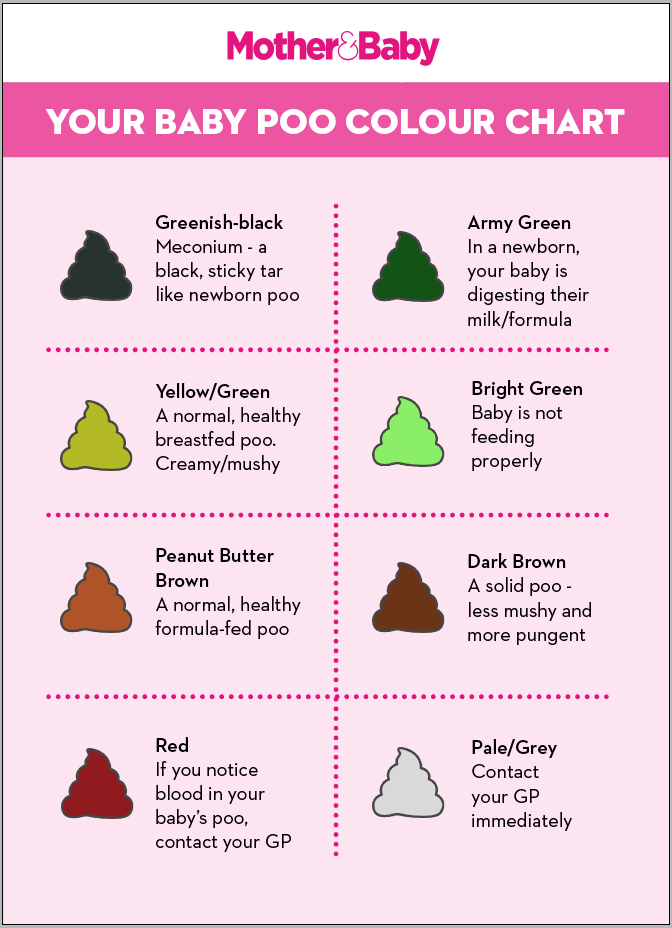 It is worth understanding the reasons for this phenomenon and consulting with a specialist.
It is worth understanding the reasons for this phenomenon and consulting with a specialist.
Contents
- How many times should a baby poop?
- Age norms for defecation of children
- Additional criteria for normal stool
How many times should a baby poop?
The first thing young parents should remember is that their child owes nothing to anyone.
The number of visits to the child's toilet depends on many factors
Moments that directly affect the number of bowel movements in a child are:
- Age. The older the child, the less often it defecates;
- The degree of development of the digestive system. This is especially noticeable in newborn boys and girls;
- Power type. Formula-fed babies poop a little less than breast-fed babies;
- Presence of concomitant pathology. A variety of disorders of the gastrointestinal tract can bring an imbalance in the normal mode of defecation from an early age of the baby.

In connection with these nuances, it is necessary to understand that if a child poops after each meal or 1 time in 2 days, then this may be normal in both cases.
The main criteria by which it is worth evaluating the physiology and "normality" of this process are:
- General well-being of the baby. It is necessary to pay attention to the facial expression of the crumbs at the time of defecation, to the sounds that she makes. When instead of the usual groaning there is a loud cry, then something definitely disturbs her;
- Regularity. 8-10 times after each feeding indicates good intestinal motility. However, 1 bowel movement, but every 2 days, is also an indicator of the stability of the functioning of the gastrointestinal tract. The main thing is the well-being of the child;
- Presence of pathological impurities. The usual feces are mushy, yellowish in color. If particles of pus, mucus, blood or undigested fragments are found in it, look for it, then you should consult a pediatrician.
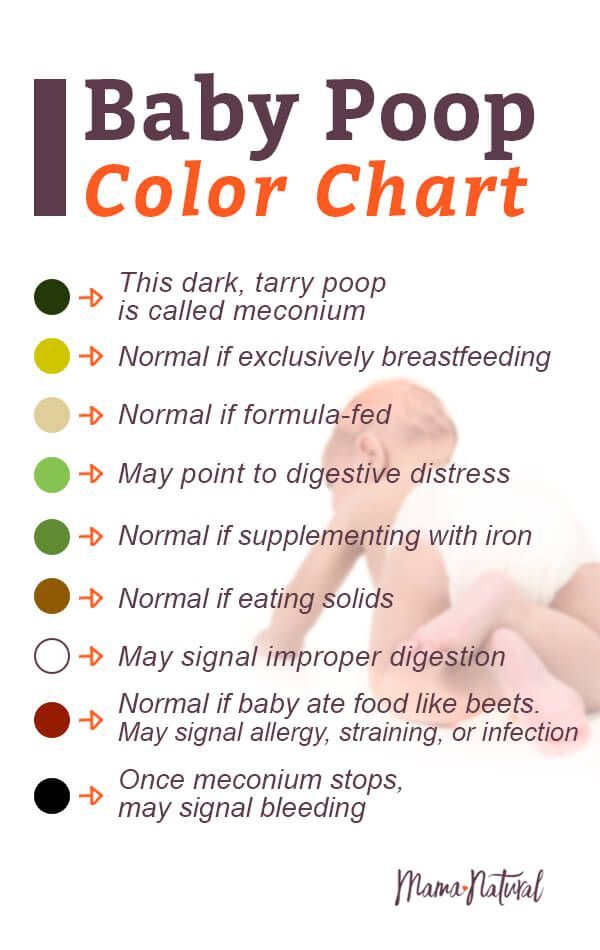
Age norms for defecation of children
The older the child, the fewer trips to the toilet should be.
It must be understood that over time, the digestive tract matures more and more and begins to function like in adults. This is manifested by a decrease in the frequency of bowel movements.
To avoid confusion about how many times a baby should poop, there are conditional normative indicators of this process, depending on age.
They look like this:
- 1-3 months - 10-12 times a day. The child can defecate after each meal;
- 3-6 months - 4-7 times a day;
- 6-12 months - 2-3 times;
- In children after 12 months, defecation occurs on average 1-2 times a day. If a child poops after every meal for a year, then you should carefully monitor his diet. Such an increase in the number of bowel movements may indicate the presence of a disease, so it is better to consult a doctor.
Additional criteria for normal stools
In addition to the number of trips to the toilet, parents need to monitor the nature of the feces. This is especially important during the neonatal period. In the first 3 days, when the baby is still in the hospital, doctors constantly ask mothers if he pooped, and how.
This is especially important during the neonatal period. In the first 3 days, when the baby is still in the hospital, doctors constantly ask mothers if he pooped, and how.
stools in children can be both frequent and not very
Important criteria to pay attention to are:
- Number of stools. The first days one bowel movement is approximately 5 g. At 6 months 40-50 g, and closer to a year - 100-150 g;
- Colour. The original feces (meconium) are green in color. During breastfeeding, yellow remains the most characteristic color. There may be different variations of it, which is due to the individual characteristics of the organism. After the introduction of complementary foods, it begins to darken and closer to the year it can become completely brown;
- Smell. In infants who are breastfed, the stool has a slightly acidic odor. Then, as with artificial nutrition, it is more rotten;
- Additional components in the stool.
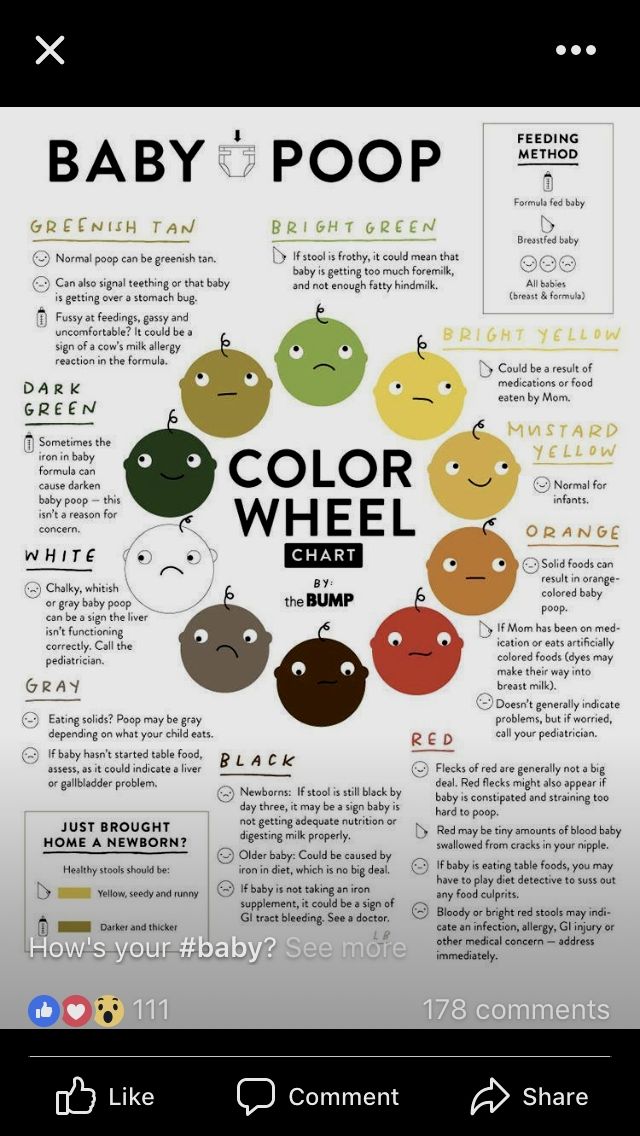 If the mother saw undigested food particles (vegetables, fruits: bananas, apples), white lumps (clots of fat), green streaks of mucus in the feces of a newborn, then you should not immediately panic. In most cases, this is due to the continuing adaptation of the infant's body to the environment. However, impurities such as pus or blood should alert parents. In any case, it is better to contact the local pediatrician for advice.
If the mother saw undigested food particles (vegetables, fruits: bananas, apples), white lumps (clots of fat), green streaks of mucus in the feces of a newborn, then you should not immediately panic. In most cases, this is due to the continuing adaptation of the infant's body to the environment. However, impurities such as pus or blood should alert parents. In any case, it is better to contact the local pediatrician for advice.
Watching your baby's bowel movements is a very serious responsibility in the early stages of his life. Therefore, it is very important to understand what is worth paying attention to. If the child poops after every meal, he may be ill and needs the help of a doctor. The health of children is the most precious thing for their parents.
normal, how many times a day, color
So many experiences are associated with how a newborn baby "walks big". Mom is worried about the frequency of the stool, its color, consistency. So how do you determine if the crumbs are all right with digestion? Perhaps he needs help?
Many mothers know that it is very important to monitor the baby's stool, and the pediatrician during the examination is always interested in how the baby walks in a big way.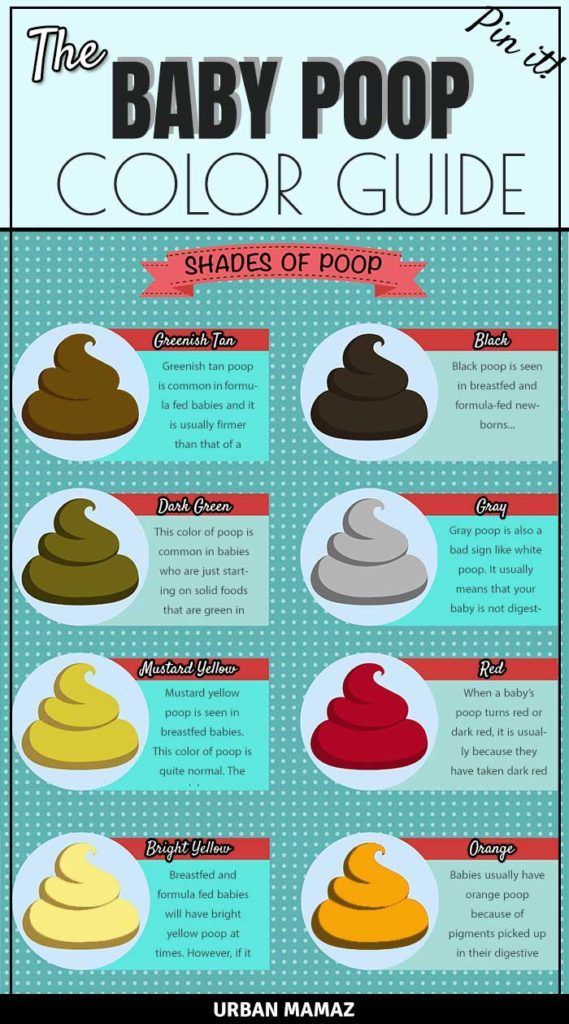 This information is one of the most important points in diagnosing the health of the crumbs. Unfortunately, quite often mothers mistakenly interpret the completely natural and safe states of the baby. And because of these mistakes, they can start unnecessary treatment and worry about the baby for no good reason. So let's figure out how a baby's chair should look like and when to worry and when not.
This information is one of the most important points in diagnosing the health of the crumbs. Unfortunately, quite often mothers mistakenly interpret the completely natural and safe states of the baby. And because of these mistakes, they can start unnecessary treatment and worry about the baby for no good reason. So let's figure out how a baby's chair should look like and when to worry and when not.
Immediately after childbirth
When the baby is in the mother's tummy, he receives all the necessary substances and trace elements through the umbilical cord. The digestive system of the crumbs does not work, but his stomach is not empty. The baby sucks his fingers, opens his mouth and thus swallows a small amount of amniotic fluid. When the baby is born, this substance will be in his intestines and will gradually come out as the baby is attached to the chest and his digestive system begins to work.
So, the first stool of the baby is meconium: dark, plasticine-like feces. So the baby recovers the first day or two. Sometimes it gives him discomfort: the baby worries, cries, pushes, before he manages to go big. However, this is not always the case - many children recover easily, only slightly pushing.
So the baby recovers the first day or two. Sometimes it gives him discomfort: the baby worries, cries, pushes, before he manages to go big. However, this is not always the case - many children recover easily, only slightly pushing.
If everything is in order with the baby, he was put to the breast in time and fed on demand, then his stool gradually changes. On the third or fifth day, the baby has the so-called "transitional stool", partly consisting of meconium, which is still in the gastrointestinal tract, partly from digested colostrum and milk. As a rule, streaks appear first in the meconium mass, then the feces gradually turn yellow. By the end of the first week, the baby's stool usually acquires the features of a normal infant: yellow, rather liquid.
When should you worry? If the baby did not go down in a big way in the first two days, it is necessary to consult a doctor. There are children with individual characteristics who will continue to do this less often than most babies.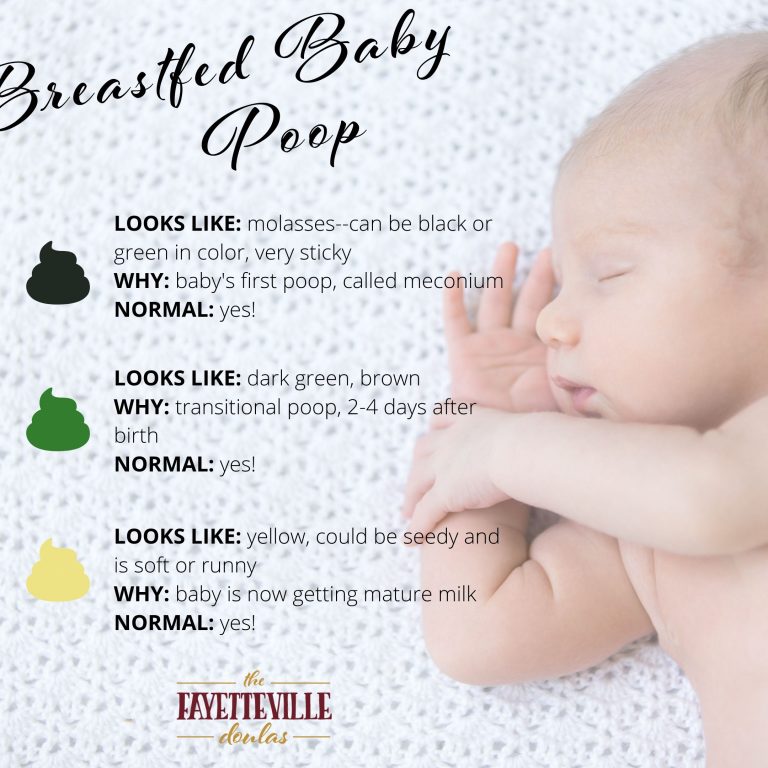 However, the cause of the stool retention should be determined by the doctor. If the crumbs have some kind of problem with intestinal patency, help will be needed immediately, but you should not diagnose your baby without a doctor.
However, the cause of the stool retention should be determined by the doctor. If the crumbs have some kind of problem with intestinal patency, help will be needed immediately, but you should not diagnose your baby without a doctor.
We are at home
On the third or fifth day, the mother receives milk, and the baby has a fairly stable stool by the end of the first week. The literature sometimes says that the stool of newborns is "creamy", and this confuses mothers, who begin to suspect that something is not right with the crumbs. In reality, the stool of a healthy baby is liquid and not always homogeneous. The normal color of feces is yellow and its shades. You may notice lumps, a little mucus - it's not scary. Do not be afraid if the baby's feces have a greenish tint for up to three months due to the immaturity of the liver enzyme systems and the characteristics of bilirubin metabolism, such a condition has the right to be and also does not require treatment.
Many mothers sometimes worry that the baby's stool "suddenly" becomes watery and the baby walks in a big way with abundant gas, a sharp sound.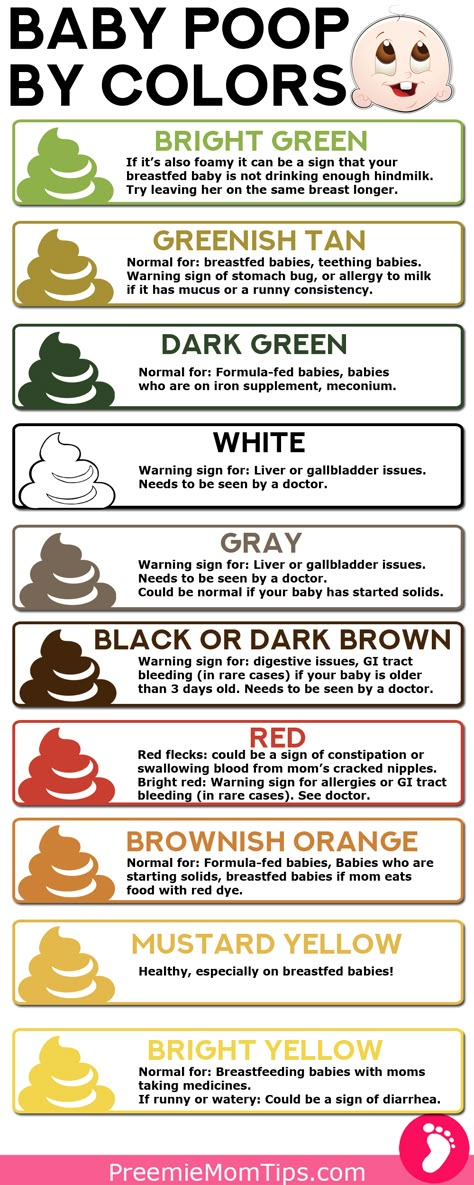 Doctors in this case often suspect lactase deficiency. In reality, things usually go like this. In the period from 3 weeks to a month and a half, the baby has frequent growth spurts, so at certain moments the baby literally “hangs on the chest” to help the mother produce more milk. Within a day or a few, the baby needs to breastfeed more often and longer than before, and the mother begins to suspect that there is not enough milk. As a result, she often begins to shift the baby from one breast to another, and the baby receives mostly "forward" milk, which comes at the beginning of feeding from each breast. This milk is rich in carbohydrates and proteins, the baby is actively growing from it, however, the stool is liquid and gassy because of this milk (sometimes the “result” looks frothy if the baby is held over a pot or basin when he needs to clear out, and the mother can observe the consistency chair). In this situation, there is no need to panic - just the baby does not need to be constantly shifted from one breast to another, fearing that he is starving.
Doctors in this case often suspect lactase deficiency. In reality, things usually go like this. In the period from 3 weeks to a month and a half, the baby has frequent growth spurts, so at certain moments the baby literally “hangs on the chest” to help the mother produce more milk. Within a day or a few, the baby needs to breastfeed more often and longer than before, and the mother begins to suspect that there is not enough milk. As a result, she often begins to shift the baby from one breast to another, and the baby receives mostly "forward" milk, which comes at the beginning of feeding from each breast. This milk is rich in carbohydrates and proteins, the baby is actively growing from it, however, the stool is liquid and gassy because of this milk (sometimes the “result” looks frothy if the baby is held over a pot or basin when he needs to clear out, and the mother can observe the consistency chair). In this situation, there is no need to panic - just the baby does not need to be constantly shifted from one breast to another, fearing that he is starving.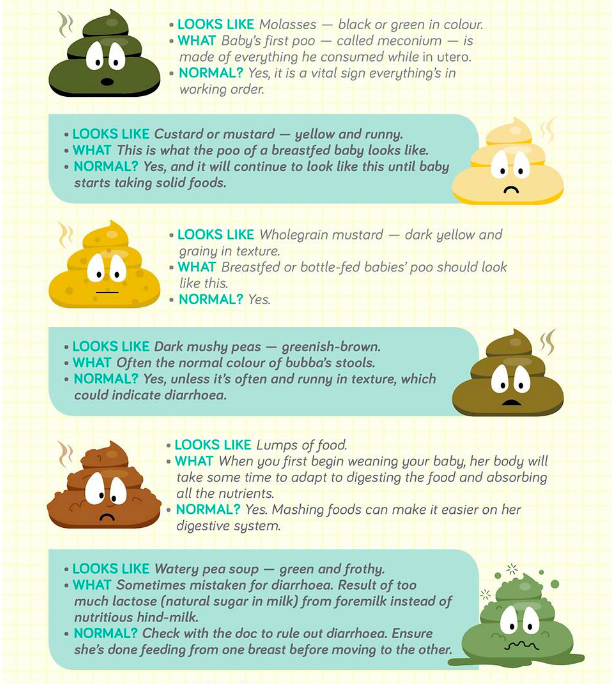 Give the baby the opportunity to get "hind" milk, rich in fats, which will not cause flatulence and stay longer in the intestines.
Give the baby the opportunity to get "hind" milk, rich in fats, which will not cause flatulence and stay longer in the intestines.
In this situation (when the baby suddenly begins to clearly suck more milk), the mother may feel insecure and start drinking lactic teas. From this, more carbohydrates again begin to flow into her milk and the baby's stool becomes more liquid and with gases.
Similar problems due to "front" milk occur in the case of improper attachment to the breast, as a result of which the baby swallows the air and interrupts feeding itself, or simply cannot get "hind" milk. The best way out in this situation is to consult with a breastfeeding specialist to correct the application technique and stop panicking that the baby "does not have enough milk."
In short, don't worry if your baby has problems with this type of stool. Of course, the flora of his intestines is unstable, it is just beginning to be established - it takes at least three to four months.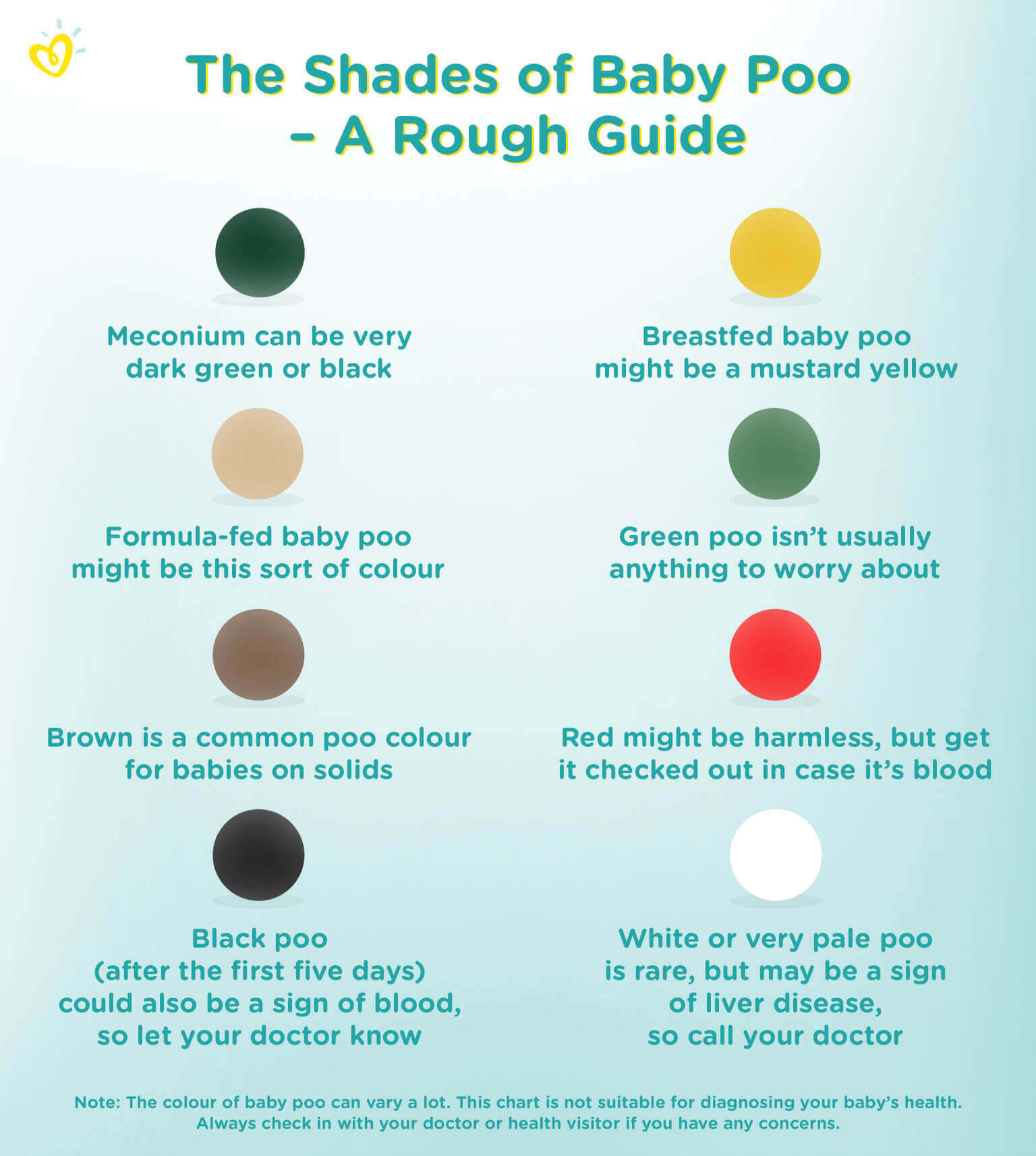 Your task is simply to feed the baby on demand and correctly and not to rush to treat him for imaginary diseases.
Your task is simply to feed the baby on demand and correctly and not to rush to treat him for imaginary diseases.
Delayed stool
Mothers worry not only about the appearance of the stool, but also because of its periodicity. How often should the baby "do things"? Normally, the baby walks in a big way several times a day, usually after feeding. However, in some children, the norm may be a chair and once a day, and even once every few days. Typically, these children have an anatomically weak anterior abdominal wall and intestinal motility. Such a periodicity of the stool can be considered the norm, if the baby still walks more regularly, the stool is of normal consistency and, in general, the baby is cheerful and cheerful and does not suffer from colic. It's not worth worrying. However, if the baby is allergic, then you need to do everything possible so that he goes to the toilet at least once a day. Atopic dermatitis is much more severe if the baby does not empty the intestines often enough - consult a doctor about this.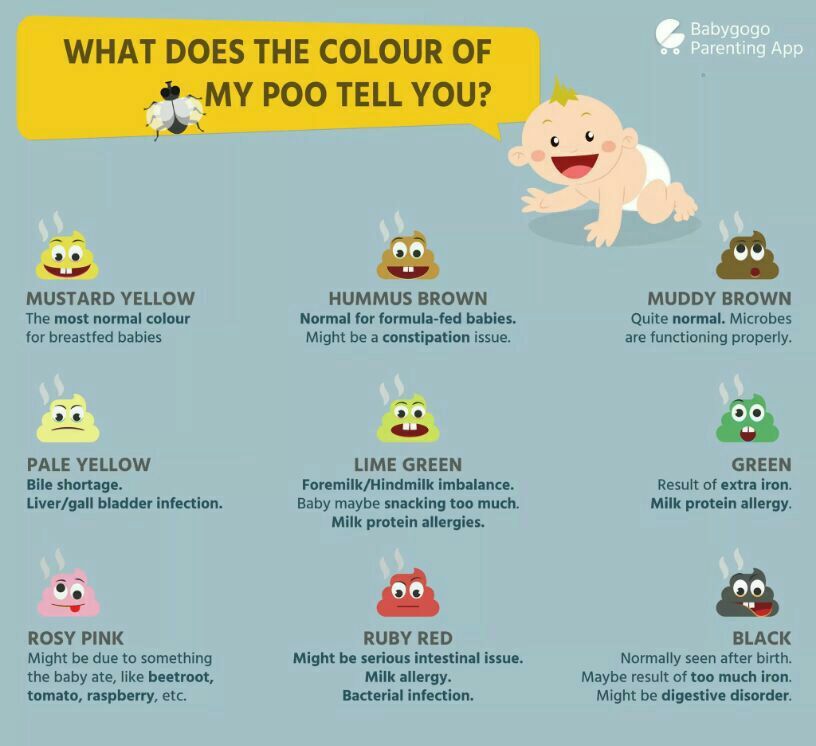
Babies also have physiological delays in stool at the age of one and a half to five months. Here it is important to monitor the condition of the baby. If he experiences discomfort, you should consult a doctor. Children can hold back their stools for psychological reasons, just as adults sometimes cannot go to the toilet if they are nervous. Do not panic because of a one-time problem, but if the problem persists or recurs, consult your doctor.
However, in babies there are not just "delays" of the stool, but also real constipation. Constipation is called not only when the baby does not go to the toilet at all, but also feces "peas", overdried, when a bowel movement is difficult. What could be the reason?
Regular constipation is usually caused by improper feeding of the crumbs. However, this condition can also occur if the mother does everything right, but she has her own health problems, for example, with the thyroid gland. Medications can also be the cause of constipation.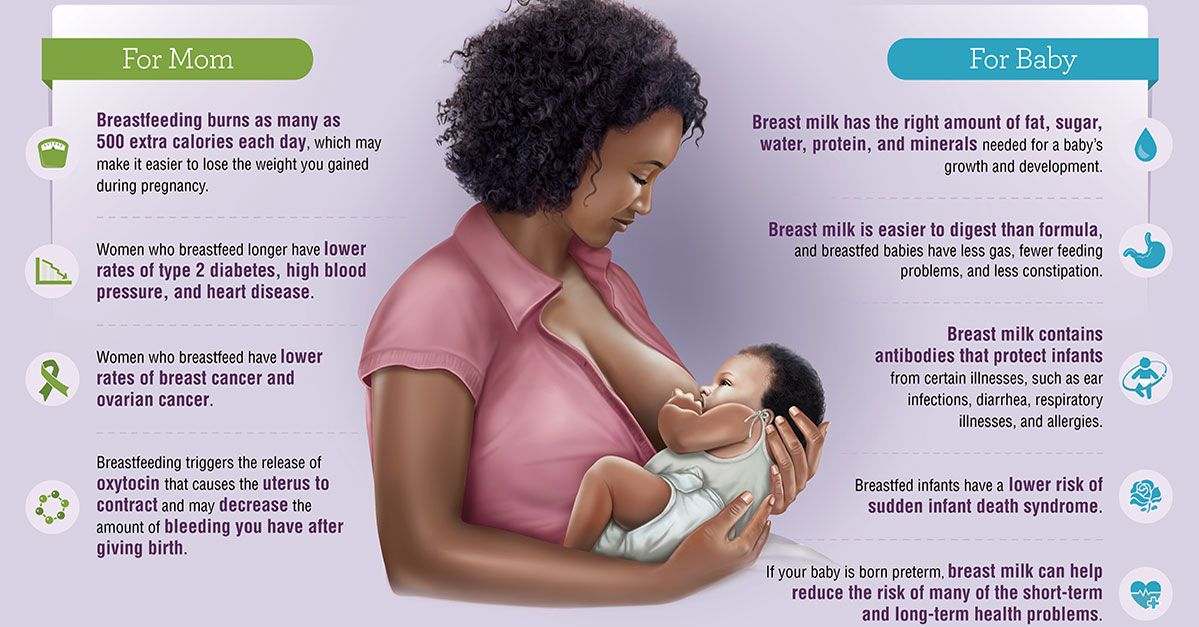 For example, intestinal weakness is provoked by all kinds of sedative mixtures and drugs, which are often prescribed to children by neurologists at an early age. Even cough medicines or tooth gels can cause constipation. In any case, the doctor should deal with this. You should not give your baby medicines and laxatives on your own, or act on it mechanically with an enema or gas tube. It is better to discuss with the doctor the issues of feeding, drug treatment and the lifestyle of the baby - so you can understand the problem.
For example, intestinal weakness is provoked by all kinds of sedative mixtures and drugs, which are often prescribed to children by neurologists at an early age. Even cough medicines or tooth gels can cause constipation. In any case, the doctor should deal with this. You should not give your baby medicines and laxatives on your own, or act on it mechanically with an enema or gas tube. It is better to discuss with the doctor the issues of feeding, drug treatment and the lifestyle of the baby - so you can understand the problem.
Weaning time
Of course, when you start introducing solid foods, your baby's stool patterns change. First of all, you need to remember that the task of the first complementary foods (at 5, 6 months) is not to feed, but to help adapt to new tastes, to new food. Give the baby complementary foods in the amount of "lick" and only gradually move on to doses "with a marigold" or "half a teaspoon". Recall that you need to introduce one product into the diet of crumbs so that you can understand how and what the baby reacts to.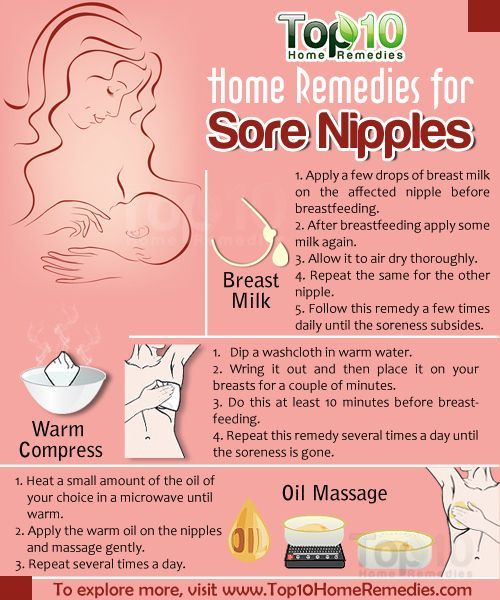 Quite often, as soon as we give the baby “with a fingernail” some food, it is not digested - we find the product in the feces almost in its original form. Within one or two days, this is normal, the baby’s body has not figured out the new component in the stomach, but if this continues on the third day, the product must be removed from the diet, since it is obvious that the baby is not yet ready to accept it. You need to take a break for a week or two, without offering the baby anything but the breast, then try again with another product.
Quite often, as soon as we give the baby “with a fingernail” some food, it is not digested - we find the product in the feces almost in its original form. Within one or two days, this is normal, the baby’s body has not figured out the new component in the stomach, but if this continues on the third day, the product must be removed from the diet, since it is obvious that the baby is not yet ready to accept it. You need to take a break for a week or two, without offering the baby anything but the breast, then try again with another product.
The baby's body can also react more violently, for example, with loose stools and abdominal pain, and sometimes with allergies. In this case, you also need to cancel the product and keep the baby breastfed so that the gastrointestinal tract calms down.
When you introduce protein to your baby, he may react with constipation. To avoid this, you need to remember simple rules. Proteins require more liquid, so if this is your baby's first food (for example, cottage cheese), give him more breast milk.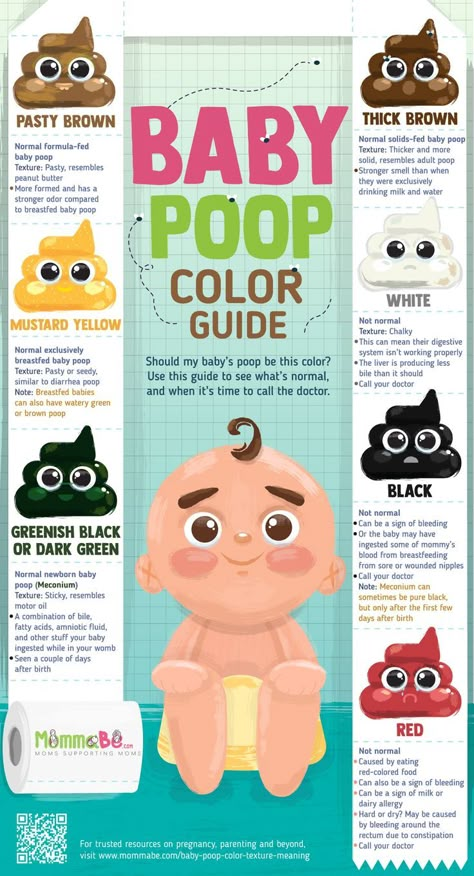 If you started introducing proteins when the baby is already drinking liquid, provide him with a drink. Do not worry about the fact that the introduction of new products has to be postponed - nothing terrible will happen to the baby. And be especially calm about the opinion that at 6-7 months the child needs to be given meat products so that he grows well. Not all children are able to absorb such a protein; for many, even a homogenized meat product at this age will lead to constipation and overload the kidneys. Let the baby eat breast milk for a longer time and receive vegetables and fruits as complementary foods - this way you will avoid many problems with the stool.
If you started introducing proteins when the baby is already drinking liquid, provide him with a drink. Do not worry about the fact that the introduction of new products has to be postponed - nothing terrible will happen to the baby. And be especially calm about the opinion that at 6-7 months the child needs to be given meat products so that he grows well. Not all children are able to absorb such a protein; for many, even a homogenized meat product at this age will lead to constipation and overload the kidneys. Let the baby eat breast milk for a longer time and receive vegetables and fruits as complementary foods - this way you will avoid many problems with the stool.
In general, mothers' concern about baby's stool is quite justified: after all, this is an important diagnostic symptom that allows you to understand a lot about the baby's condition. However, it must be remembered that not all situations require intervention, and most problems can be solved simply by correcting feeding mistakes.